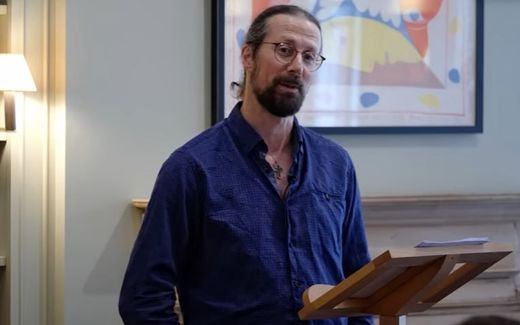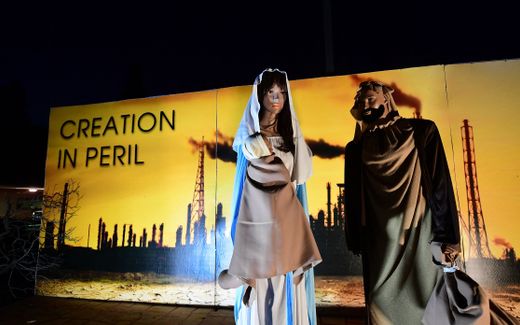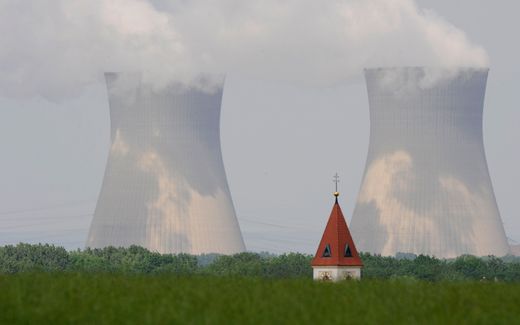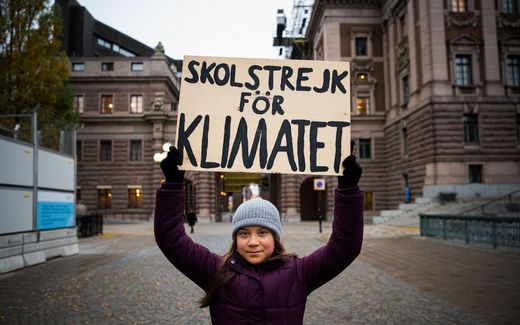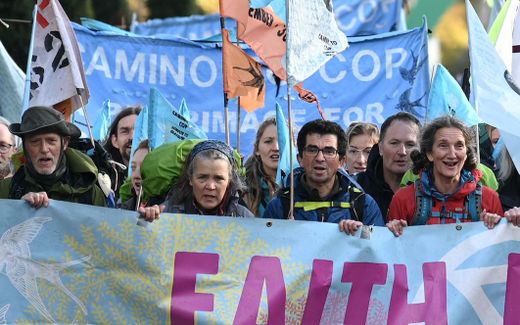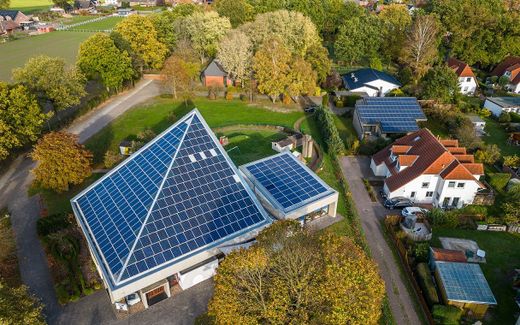Guest commentary: Climate change is there, but do you see the fire?
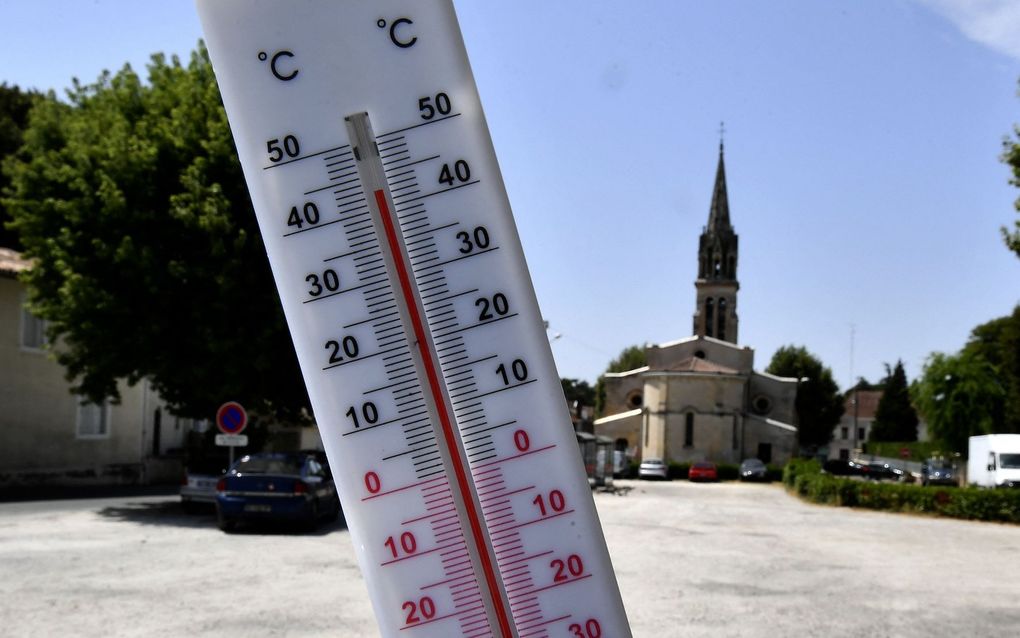
Temperatures go high up in debates about climate change. Photo AFP, Georges Gobet
Opinion
“Our house is on fire,” said a banner from Fridays for Future at a climate demonstration. Of course, this is not the first time someone has worried about the earth’s future existence.
The words made me think of Johannes Stöffler (1452-1531), a German mathematician, astronomer, and priest who made a bold prediction in 1499. On February 20, 1524, he preached that a great flood would engulf the earth, destroying everything in its path. At the time, his words sounded like the Gospel. However, his prediction was wrong.
Stöffler’s words resonated deeply in his time, and that’s because people had to deal with natural disasters, such as earthquakes, landslides and thunderstorms that not only destroyed cities but wiped out entire territories. They knew what it would entail to experience a natural calamity of the magnitude described by Stöffler. Besides, who did not want to be prepared against the great flood that would destroy the earth, as the great scientist of that time claimed?
Prediction

Though Stöffler could hardly prove his assertion, a social psychosis began, and people started to prepare for the worst, building wooden arks and making all kinds of preparations for judgment day.
This, in turn, prompts a thought-provoking question for today: What if the modern climate change crisis is just another bold prediction? This question demands our attention. The contemporary assertion is that climate change is a crisis that will destroy the earth, and because of that, we need to prepare for the worst.
Should we accept this statement solely because it comes from a renowned scientist or because of its audacity? Shouldn’t there be concrete, verifiable evidence to support such a claim?
Peace
It’s crucial to note that dismissing climate change as a non-issue in our modern times is as irrational as a person in Stöffler’s era denying the occurrence of natural calamities. However, the key point is not whether climate change is a reality but the degree to which it presents a crisis and the imperative for a measured, evidence-based response.
The modern era is experiencing a social psychosis. Climate activists in the UK, Germany, and France are disrupting the peace in neighbourhoods, throwing milk on the supermarket floor, and obstructing traffic by putting themselves in front of cars.
It is no wonder they have come to be called extremists; they have interrupted sports games and stage shows, destroyed art pieces, and some, not many, have even turned violent. In short, they are making life difficult for their fellow neighbours who have nothing to do with their demonstrations.
Support
This is not only wrong, but counterproductive. Because of these actions, climate activists have lost public support. For instance, in the UK, according to a recent poll, 68 per cent of respondents disapproved of Just Stop Oil because of all its tactics and disruptions. This British environmental group opposes the licensing and production of new oil, gas, and coal projects.
Disruptive climate activists are arrested and punished across the European continent according to European laws and regulations, which are based on what the Bible says in Romans 13. European citizens can protest for or against any cause they want, but they must do so peacefully.
Although there are academics, scientists, and journalists who try to calm things down and be reasonable, they are usually ignored. The consensus among scientists is that the climate crisis is an emergency, and action must be taken swiftly. Thus, you are either for or against. Moreover, regarding political discourse, you need help to see balance and level-headedness. There is no middle ground nowadays.
Fair-minded
Among the leading academics, scientists, and journalists who dare to be reasonable and not be overtaken by this social psychosis, taking a fair-minded approach to the issue of climate change, are Dr. Bjorn Lomborg, Dr. Judith Curry, and Andrew Revkin.

In his book “False Alarm: How Climate Change Panic Costs Us Trillions, Hurts the Poor, and Fails to Fix the Planet”, Dr. Bjorn Lomborg presents a balanced view. He states, “Science shows us that fears of a climate apocalypse are unfounded. Global warming is real, but it is not the world’s end. It is a manageable problem.”
Lomborg acknowledges the reality of climate change and human activity’s role but also advocates for a proportional response. One solution that he repeatedly stresses among many in his climate change policy is innovation, especially regarding power stations and how we produce electricity.
Hunger
Another study, “Risk of increased food insecurity under stringent global climate change mitigation policy”, claims that international action to reduce climate change would cause far more hunger and food insecurity than the climate change crisis.
The paradox is that on the global stage, raising people out of poverty is a far better option because it will give them a chance to live in a clean environment. As Lomborg puts it: “Rising the GDP [gross domestic product] actually alleviates environmental problems because poverty is often the biggest cause of pollution.”
According to The Eco Experts, a UK-based company, the most air-polluted countries in the world are not part of the developed world. They are part of the developing world, and at the top are India, Nigeria, and South Sudan. In the grand scheme, helping developing countries catch up with the other developed countries is far better.
In other words, if climate change policies (and hysteria) aim to promote a better world, they will fail miserably. They will cause more harm than the damage they try to prevent, especially for those living in developing countries.
Europeans enjoy clean air and a friendly environment primarily because of technological progress. Going back 1000 years and not only giving up the air conditioning, smartphones, and refrigerators, among the most vital contemporary technologies but also living like our ancestors because of the carbon footprint is counterproductive.
Solar
In 2021, the EU electricity generation share was nuclear 25 per cent, natural gas 20 per cent, coal 14 per cent, hydropower 13 per cent, wind 13 per cent, and solar 6 per cent. The European Union is so dependent on conventional sources of energy (nuclear, fossil fuels, hydropower) that if it were to shut down all power plants right now and run only on unconventional (wind, solar, biomass, etc.), it would grind to a halt.
No matter how clean and good unconventional energy sources might be for the environment, they are not a viable option for the future because their productivity levels are low and fluctuate with the weather. By all metrics, while there are safety concerns, nuclear energy is the optimal solution for the future, as it has the lowest effect on the climate but is also productive and cheap.
The European Union’s climate change policies for 2050 have an estimated cost of 2,300 billion euros annually, 10 per cent of its GDP. As Lomborg states, these costs are more than education, health, environment, housing, defence, police, and courts combined. This means that European citizens will have to pay higher prices for energy.

If the EU continues on this path, life will become more difficult for its citizens. While some would choose the path of nonviolent resistance through peaceful protest against the EU’s unwise budgeting decisions, others would not approach the issue the same way, and mutinies and rebellions would emerge.
Moreover, it can be argued that the EU’s climate change policies are unjust, as they will harm its citizens. Thus, the Directorate-General for Environment (DG ENV) should be held accountable by the Directorate-General for Justice and Consumers (DG JUST) for any harm its policies may cause European citizens.
Fortunately, the assertion that climate change is a crisis that will destroy the earth is similar to Stöffler’s prediction. It is only a bold assertion without any factual basis. However, if we can improve and make the world cleaner, we should do it.
For a long time, working conditions in factories, coal mines, and carpentry workshops were gruesome, and people working in such environments had to deal with diseases and work-related injuries. However, conditions improved over time through sound policy, innovation, and safety regulations, and work-related injuries and diseases were reduced.
We did not close down factories, coal mines, or carpentry shops. We understood that we needed them as a society. The same principle should be applied to climate change policy.
Lesson
Sound policy will make the environment safer and improve social and economic conditions. If history has taught us a lesson, it is this: sound policy improves people’s social and economic conditions.
While the initiative to protect and make the earth cleaner is good, sound policy, innovation, and safety regulations should be the way to go. As it stands, climate change hysteria (and policies) are unfortunately counterproductive and will become a burden not only for European citizens but for the entire world.
If our house is on fire, as Fridays for Future claims, I may ask: Where is the fire?
Related Articles


